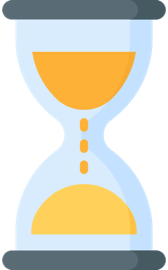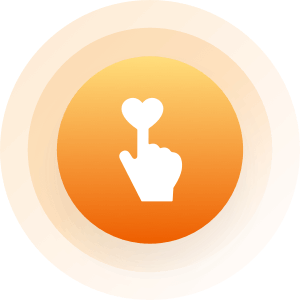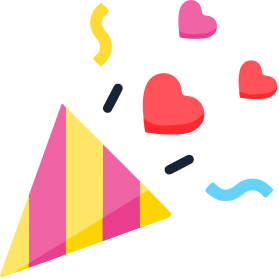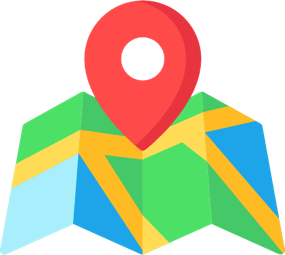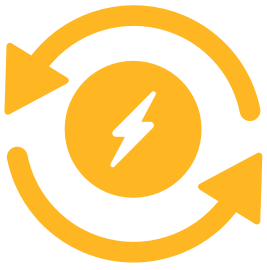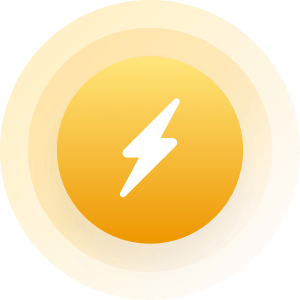| Topic: REALLY? | |
|---|---|
|
>The two longest one-syllable words in the English language are screeched and strengths.
> >Stewardesses and reverberated are the two longest words that can be typed using only the left hand. > >Lollipop is the longest word that can be typed using only the right hand. > >Skepticisms is the longest word that alternates hands. > >Upper and lower case letters are named "upper" and "lower," because in the time when all original print had to be set in individual letters, the "upper case" letters were stored in the case on top of the case that stored the smaller, "lower case" letters. > >Typewriter is the longest word that can be made using the letters only on one row of the keyboard. (Anm. von munzli: das gaht natürlich numme ufememe englishe keyboard) > >The sentence, "The quick brown fox jumps over the lazy dog." uses every letter in the English language and was once commonly used as a practice sentence for beginning typists. > >"The sixth sick sheik's sixth sheep's sick" is said to be the toughest tongue twister in the English language. > >"I am." is the shortest complete sentence in the English language. > >No word in the English language rhymes with month, orange, silver or purple. > >Dreamt is the only English word that ends in the letters mt. > >The verb cleave is the only English word with two synonyms which are antonyms of each other: adhere and separate. > >The only 15 letter word that can be spelled without repeating a letter is uncopyrightable. > >Facetious and abstemious contain all the vowels in the correct order, as does arsenious, meaning "containing arsenic." >The word race car, kayak and radar are the same whether they are read left to right or right to left. > >Dr. Seuss coined the word nerd in his 1950 book, "If I Ran the Zoo." > >The right side of a ship is called the starboard because navigators used to stand out on the plank (which was on the right side) to get an unobstructed view of the stars. The left side is called the port side because this was the side you put in on at the port -- so as not to knock off the star board. > >Clans of long ago that wanted to get rid of their unwanted people without killing them use to burn their houses down -- hence the expression "to get fired." > >The phrase "rule of thumb" is derived from an old English law which stated that you couldn't beat your wife with anything wider than your thumb. > >Nylon is an acronym for the 2 leading garment centers in the world: New York and London. > >Police investigators are experts in collecting dactylograms, otherwise know as fingerprints. > >The word checkmate in chess comes from the Persian phrase "Shah Mat," which means "the king is dead." > >Here's the origin of the word posh. In the early 20th century, when great Britain ruled the waves, India was their favorite winter getaway. At that time most of the ships used for passenger travel were steel-hulled and extremely hot while passing the equator. Wealthy passengers would often book two staterooms for their trip, always on the lee side of the ship. The ticket master would then mark their ticket POSH (Port Out Starboard Home). Over the years, the acronym has come to denote gracious living. > >An amphigory is a nonsense verse or composition with apparent meaning which proves to be meaningless. > >A contretemps is an inopportune or embarrassing occurrence or situation. > >Omphaloskepsis means, "contemplation of one's navel as an aid to meditation." > >An oenophile is a lover or connoisseur of wine. > >Pharisaical is an adjective, meaning "marked by hypocritical censorious self-righteousness." > >In English pubs, ale is ordered by pints and quarts. In old England, when customers got unruly, the bartender would yell at them to mind their own pints and quarts and settle down. This is the origin of the phrase mind your P's and Q's. > >The original name for the butterfly was "flutterby." > >The dot over the letter "i" is called a tittle. > >The term skyscraper was first used way back in 1888 to describe an 11 story building. > >Dr. Samuel A. Mudd was the physician who set the leg of Lincoln's assassin John Wilkes Booth ... and whose shame created the expression for ignominy, "His name is Mudd." > >The word testify comes from the Roman courts. Men swore to a statement, by swearing on their testicles. > >A jiffy is an actual unit of time for 1/100th of a second. > >The word floccinaucinihilipilification means "the act of estimating as worthless." > >The word samba means "to rub navels together." > >Three dog night (attributed to Australian Aborigines) came about because on especially cold nights these nomadic people needed three dogs (dingos, actually) to keep from freezing. > >The saying, "It's so cold out there it could freeze the balls off a brass monkey" came from when they had old cannons like ones used in the Civil War. The cannonballs were stacked in a pyramid formation, called a brass monkey. When it got extremely cold outside they would crack and break off. > >22% of us are functionally illiterate. Less than 10% are trilingual. > >The English combination ough can be pronounced in nine different ways. The following sentence contains them all: >"A rough-coated, dough-faced, thoughtful ploughman strode through the streets of Scarborough; after falling into a slough, he coughed and hiccoughed." > >The longest word in the English language, according to the Oxford English Dictionary, is pneumonoultramicroscopicsilicovolcanoconiosis. It is a pneumoconiosis disease caused by the inhalation of very fine silicate or quartz dust. The only other word with the same amount of letters is pneumonoultramicroscopicsilicovolcanoconioses, its plural. >Of all the words in the English language, the word set has the most definitions. > >Hydroxydesoxycorticosterone and hydroxydeoxycorticosterones are the largest anagrams. > >If you spell out the numbers, you reach one thousand, before using the letter "A". > >The most used letter in the English alphabet is "E" and "Q" is the least used. > >The Hawaiian alphabet has 12 letters. > >The Sanskrit word for war means desire for more cows. > >"Underground" and "underfund" are two English words that begin and end with the letters "und." > >The word queueing is the only English word with five consecutive vowels. > >The Chinese ideogram for trouble symbolizes "two women living under one roof." > >In Chinese, the words for crisis and opportunity are the same. > >The liver, not the heart, is the sign of romance in northern Morocco. When a Moroccan girl falls in love she says, "Darling, you have stolen my liver." > >The symbol on the "pound" key (#) is called an octothorpe. > >The abbreviation for pound, lb., comes from the astrological sign Libra, meaning balance, which is symbolized by scales. > >The plastic things on the end of shoelaces are called aglets. > >The phrase sleep tight derives from the fact that early mattresses were filled with straw and held up with rope stretched across the bed frame. A tight sleep was a comfortable sleep. > >The word byte is a contraction of "by eight." > >The "L.L." in L.L. Bean stands for Leon Leonwood. > >The term "the whole 9 yards" came from World War II fighter pilots in the South Pacific. When arming their airplanes on the ground, the .50 caliber machine gun ammo belts measured exactly 27 feet, before being loaded into the fuselage. If the pilots fired all their ammo at a target, it got "the whole 9 yards." > >The y in signs reading "ye olde ..." is properly pronounced with a "th" sound, not "y." The "th" sound does not exist in Latin, so ancient Roman-occupied England used the rune "thorn" to represent "th" sounds. With the advent of the printing press the character from the Roman alphabet which closest resembled thorn was the lower case y. > >In Webster's 1996 dictionary, 315 entries were misspelled. |
|
|
|
|

